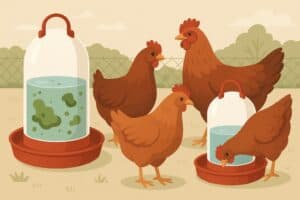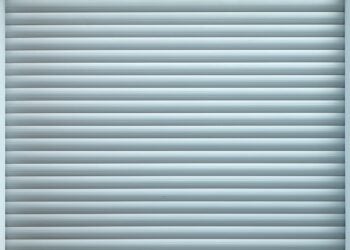Are you raising chickens in your backyard and wondering why not all the chickens are the same in nature in terms of their activeness and more? Noticing dull feathers or a sudden illness can be frustrating, but overcoming them is where you look exceptional. Chicken waterer is one name that often arises when it comes to chicken health and safety. The perks are unmatched, from reducing the moisture that causes algae and any potential bacteria to saving the chickens from frostbite. Let’s explore the advantages of chicken waterers and how they are ensuring fresh and clean water with minimal human effort.
Clean Water Supports Optimal Chicken Health
Just like any other living creature, chickens are no exception to keeping them away from fresh and clean water. When a chick waterer is left dirty, it can quickly become a source of harmful pathogens like E. coli, Salmonella, and other bacteria that can make your flock sick.
Dirty water can also contain algae, which not only look unsightly but can also produce toxins that are dangerous to chickens. Even minor contaminants can lead to digestive issues, reduced egg production, and a weakened immune system in your birds. Simply put, clean water equals healthy chickens.
Reduces the Risk of Disease Spread
One of the primary benefits of maintaining a clean waterer is the reduced risk of disease spreading within your flock. Chickens tend to share waterers, which means that any bacteria introduced by one bird can quickly infect others.
For instance, if a sick chicken drinks from a dirty waterer, it can leave behind pathogens that may spread to healthy birds. You can greatly minimize the chances of your birds being infected with dangerous diseases by maintaining your waterer clean. Ensuring your waterer is clean is an easy, effective way to ensure the well-being of your flock.
Promotes Better Hydration for Your Flock
The chance for chickens to have access to enough liquids to drink increases when the water itself is clean, clear and fresh. Chickens, just like humans, like to drink clean, clear water instead of dirty water. Dirty water in the feeding station, especially muddy or bad-smelling water that causes your chickens to avoid drinking, will dehydrate your birds.
Dehydration can have serious consequences for your chickens, including poor digestion, reduced egg production, and even death in severe cases. By maintaining a clean waterer, you encourage your chickens to drink more, ensuring they stay properly hydrated.
Enhances Egg Production and Quality
Did you know that clean water can directly impact the quality and quantity of eggs your chickens produce? Hens that drink from a clean water source are more likely to maintain strong, healthy bodies, which translates to better egg production.
A clean chick waterer ensures that your laying hens receive the hydration they need to produce strong, healthy eggs with sturdy shells. On the other hand, contaminated water can lead to nutrient deficiencies, which may result in poor egg quality, including weak shells and irregular shapes.
Minimizes Maintenance Time in the Long Run
Cleaning your waterer might feel like a hassle. But it actually saves you time later. When you clean it regularly, you stop algae from building up. And trust me, scrubbing away thick algae is a real pain.
Regular cleaning also helps you catch problems early. You can spot leaks, cracks, or rust before they get worse. Fixing these early is way easier than dealing with a big mess. So, don’t skip it. Keep the waterer clean, and you’ll spend less time dealing with dirty water. More time enjoying your healthy, happy flock.
Avoid Foul Odors Around the Coop
Dirty water can significantly lead to a bad odor, which is obviously an unpleasant experience. Moreover, pests like flies, rodents and even predators are highly attracted to the unpleasant smell from stagnant and contaminated water.
By keeping your chick waterer clean, you eliminate these odors and maintain a fresher, more pleasant environment for your flock. Your chickens will be happier, and so will you, every time you visit your coop.
How to Keep Your Chicken Waterer Clean?
Maintaining a clean chick waterer doesn’t have to be complicated. Start by choosing a waterer made of materials that are easy to clean, like smooth plastic or stainless steel. Avoid porous surfaces that can harbor bacteria.
Make it a habit to empty and rinse your waterer daily, scrubbing it with a mild detergent at least once a week. For outdoor waterers, consider positioning them in a shaded area to reduce algae growth. You can also add a little bit of apple cider vinegar to the water to help prevent bacterial buildup, but be sure to follow safe dosage guidelines.
Conclusion
You can’t ignore the importance of a clean chick waterer. It’s the heart of a healthy flock. Clean water means better hydration. It cuts down disease risks. It can even boost egg production.
Keeping the waterer clean isn’t just about fresh water. It’s about protecting your chickens from sickness. A dirty waterer can spread germs fast. But a clean one keeps your coop fresher. Your chickens stay happier, too. Remember this simple rule: A clean waterer means healthy chickens. And healthy chickens make poultry-keeping more rewarding.




